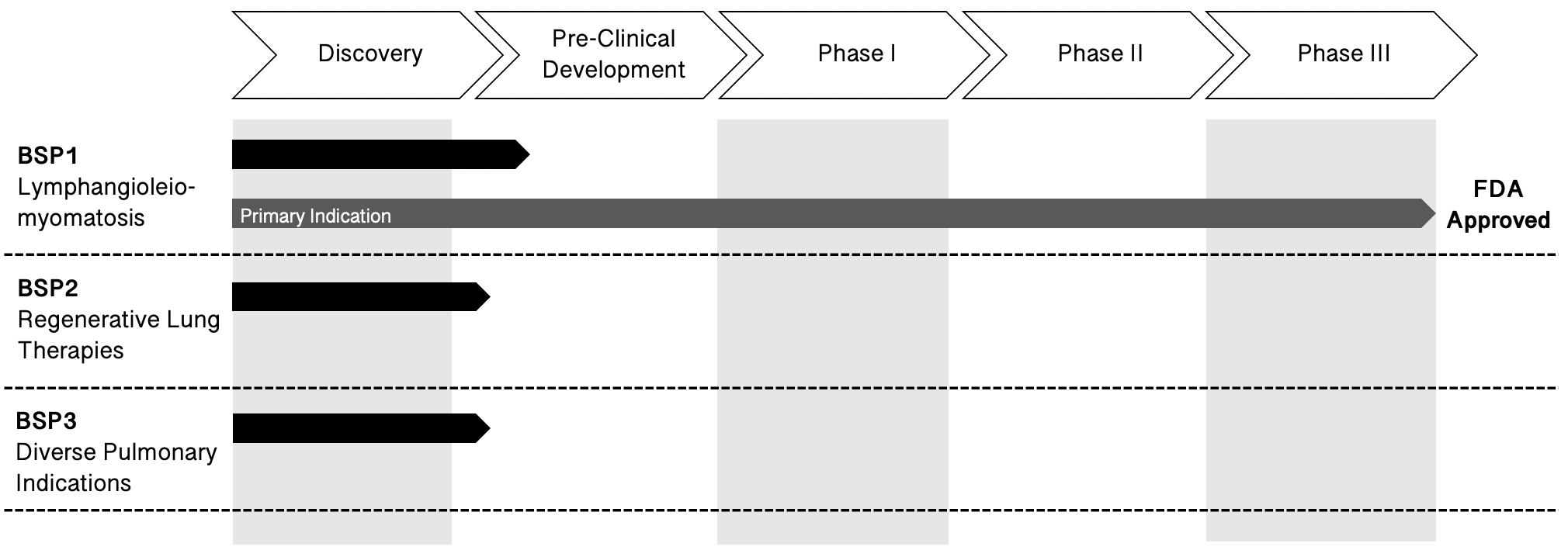Pipeline
BSP1 - Repurposing of Nitazoxanide as a novel therapy for Lymphangioleio-myomatosis (LAM)
Nitazoxanide (NTZ) is an orally bioavailable antiprotozoal small molecule drug approved for the treatment of diarrhea caused by Giardia lamblia or Cryptosporidium parvum in children and adults. NTZs excellent safety profile characterized by its more than 20 years of clinical use make it an ideal candidate for repurposing.
NTZ is being investigated as a potential new treatment for LAM, a rare genetic lung disease that is only partly managed by the mTORC1 inhibitor Rapamycin.
Nitazoxanide was able to inhibit mTORC1 signaling in three LAM-relevant cell lines, stop LAM cell growth in vitro and reduce tumor burden in a mouse model of LAM.
We are developing NTZ under NIH funding, as a novel treatment for LAM in collaboration with Prof. Vera Krymskaya at the University of Pennsylvania. Our first promising in vitro results were presented at the LAMposium in Chicago in September 2022. An in vivo study is currently underway.
This research is supported by the National Heart, Lung, And Blood Institute of the National Institutes of Health under Award Number R41HL156767.
—
BSP2 - miRNA302b/c mimics as regenerative therapy for LAM
microRNAs (miRNAs, miRs) are key modulators of regeneration processes by controlling the expression of signaling and transcription factors involved in multiple facets of tissue development and regeneration
miRNA cluster miR-302–367, part of the miR-302 family, is highly expressed at early stages of fetal mouse lung development and contributes to the enhanced proliferation of lung progenitor cells during embryogenesis.
Treatment with miRNA-302b mimics was able to improve lung structure, functions, host recovery, and survival in a lung injury model.
This program is a continuation of our fruitful collaboration with Prof. Vera Krymskaya at the University of Pennsylvania and other experts in the area of miRNAs.
—
BSP3 - Inhaled Lipid Nanoparticle RNA formulations for lung diseases
RNA is a versatile, flexible and highly promising therapeutic and diagnostic technology. It comes in many forms (miRNA, siRNA, mRNA) but all forms are challenged by immunogenicity, premature degradation and lack of targeting.
Lipid Nanoparticles are a powerful precision medicine delivery technology. Although many companies use and develop LNPs, inhalative delivery programs are still scarce and would address an important unmet need.
Biosputnik aspires to build a platform technology combining LNPs specialized for cell specific targeted delivery of therapeutic RNA in collaboration with leading academic experts in the field.
